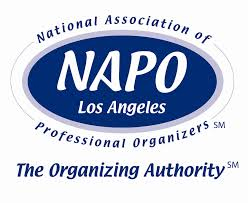The Mass-Media Madhouse
(Press-Central For Handy Soundbites, Useful Info,
And A Good Wet-Your-Pants Laugh)
Home / The Mass-Media Madhouse
(Press-Central For Handy Soundbites, Useful Info,
And A Good Wet-Your-Pants Laugh) / Professional Organizer’s Blog Carnival / As Published In Professional Organizers Blog Carnival --
Getting Off The Telemarketing Lists
As Published In Professional Organizers Blog Carnival —
Getting Off The Telemarketing Lists

I recently visited my family — and I was amazed at the completely ridiculous number of telemarketing solicitations they receive during the day. Their phone rings off the hook with calls from all kinds of sleazy and predatory companies trying to convince them they have won a free cruise or talk them into burial insurance or scam them with a reverse mortgage. I personally don’t get these calls anymore, so I didn’t realize this was even still going on. Talk about communications clutter!
Who Actually Buys From These People??
I don’t know about you, but I have never in my life bought anything from a telemarketer. I don’t give to charities that solicit donations over the phone if they aren’t willing to send me some paperwork to prove that they are legitimate non-profit organizations. And even if you offer a product or service that I would have otherwise been interested in, I’m tremendously less likely to have anything to do with your company if you call ME than if I call YOU.
Apparently, I’m not the only American inclined to tell you to buzz off if you try to solicit my business over the phone. The Direct Marketing Association’s most recent survey found that 98% of 1.78 million respondents said telemarketing calls made them “angry,” the FTC receives nearly 20,000 complaints a year, and DMA itself gets 4,000 telemarketing complaints a month. So how exactly is this a profitable business model and why are they still doing it? Well clearly someone is shopping with these people — telemarketing is (if you can believe this) a $400 billion a year industry!
Just like internet spamming, telemarketing is popular because a) setting up a machine to dial a zillion numbers and play a recorded message costs almost nothing, and b) if they get even one person on the hook, they’ve made money. While there may be one or two legitimate businesses making cold calls out there, this is not where most of the revenue is generated. The National Fraud Information Center and FTC report that 500,000,000 Americans have fallen prey to phony telemarketing schemes, at a loss of more than $100 billion. Investment scams alone cost citizens $1 million an hour — and did you know that charities make more money selling your name and number to other companies than from the donations they collect? Even if you do donate, a mere 24% of the money actually goes to the charity (the telemarketing company gets the rest). The only people making money from telemarketing are the call centers and the scamsters.
Serious Scumbags
While telemarketing calls of any kind are intrusive and annoying, those that target the elderly are downright despicable. More than 56% of the people contacted by telemarketers are age 50+. Unscrupulous businesses go after this particular demographic because older people are seen as more trusting, more likely to stay on the line and feed the telemarketer all kinds of information about themselves, less inclined to just hang up. And the rule of thumb in telemarketing is the longer you can keep someone on the phone, the more likely you are to wear them down! The elderly are also more vulnerable to aggressive and bullying sales techniques, scare tactics, and “too-good-to-be-true” offers. Folks who live on fixed incomes and are worried about money can fall prey to promises of phony rebates, sweepstakes winnings, reduced mortgage rates, or larger-than-life investment returns. And then there are all the people wanting to sell you discounted medical equipment and prescriptions, insurance, and funeral packages. No wonder these slimeballs love my in-laws so much!
While visiting, I appointed myself official “F-U-sayer” every time one of these fools called. I’ve just recently signed my family up for the Do-Not-Call list and when they got a telemarketer on the phone, they would hand it to me — I inform them that we are recording this call, that we have caller ID and know their number, and that I’m going to immediately report them to the FTC and have them fined if they don’t ever call here again. Eventually, I’ll get to yell at all 65,000 telemarketers who have been harassing them and the phone will finally be silent.
The biggest frustration comes with these stupid “robo-callers” that never let you talk to a human being (it’s hard to tell a computer to piss off and really get your message across!) At least in my day, it was a real person on the other end of the line (I’m embarrassed to admit that I used to give away timeshare tours as a part-time job in high school) — and you could tell them to leave you the hell alone. But now when you pick up the phone, you get a 20-minute pre-recorded sales pitch. Fortunately, a recent bill was passed making it illegal for companies to contact you via an automated-dialing system without your express written permission — at a penalty of $16,000 per call. Unfortunately, when they come from outside the US, it’s hard to bust the offending companies — that’s when a spam-blocking phone app really pays off.
Sending A Message
There are two reasons that my family is bombarded by all these unsolicited calls while I am not. The first is that I dropped my land-line service and only use my cell phone as I RV around the country (FCC regulations prohibit telemarketers from calling cellular numbers). The second is that I listed my phone number on the Do-Not-Call list from the moment I got them — my family never did, and I only just signed them up for the service during this visit.
In case you’re unfamiliar with the registry, this federal legislation was passed in 2003, prohibiting telemarketers from contacting anyone on the Do-Not-Call list, unless they have done business with that person in the last 18 months. If you aren’t already signed up, just call 1-888-382-1222 from the number you wish to register (you’ll need to register each number separately). Telemarketers will have up to 31 days to stop calling you or you can sic the dogs on them!
According to the Economic Report Of The President, 72% of Americans have registered their phone numbers, and 77% of those say that it made a large difference in the number of telemarketing calls that they receive. Just a year after signing onto the list, most folks report an average decrease in telemarketing solicitations from 30 calls per month to six per month. If you receive an unsolicited call after joining the registry, let the telemarketer know that you plan on reporting them to the FTC, and that they will be fined $150 for violating the Do-Not-Call legislation. Whether you actually report them or not, that should stop them from bugging you. But, of course, there are some exceptions to the rule:
- you can only list a residential number on the list, not business a line
- you may still receive unsolicited calls from political organizations
- you may still receive unsolicited calls from charities
- you may still receive unsolicited calls from companies doing market research
- you may still receive unsolicited calls from bill collectors
You also have the right to tell ANY company to take you off of their in-house list — even political parties, charities, current vendors. If these folks keep calling, threaten to report them as well. What I don’t understand is why you have to make a special effort to not be harassed by these people! From the very beginning, the system should have been opt-in, not opt-out.
Click here for reuse options!Copyright 2001 RamonaCreel.com
 PS: Wanna instantly rack up some serious virtual cred? I've made it easy for you to share this content with your social networking friends, e-mail it to your peeps, or republish it in your own blog (thereby showing off how smart you are) with these links.
PS: Wanna instantly rack up some serious virtual cred? I've made it easy for you to share this content with your social networking friends, e-mail it to your peeps, or republish it in your own blog (thereby showing off how smart you are) with these links.
(iCopyright widget here)
"I Have More To Say About This... No Surprise!"
If you would like to reprint this page, please contact me






It is a problem here in Canada as well. The CRTC (who oversee such matters) recently announced sanctions against 85 telemarketing companies it says serially violated do-not-call orders and other rules. Another 11 companies faced fines totalling $41,000.